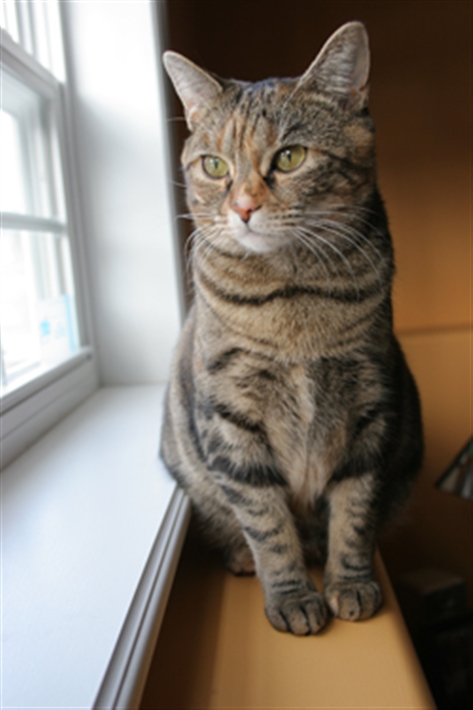Indoor Cats

With more and more people living near busy roads having to move to flats we are getting more requests for indoor cats and kittens.
Although we do re-home to indoor situations, there are a few procedures and policies that we adhere to so that both the cats and potential adopters are happy! We do not generally rehome kittens to indoor homes if there is no illness or disability (such as FIV, deafness or blindness) involved that would make them suitable for indoor homes only.
We do rehome adult cats to indoor homes, either because of some disability or illness or just because they are much happier being house cats. We may get asked to rehome a cat that has spent part of its life as an indoor cat , but if there isn’t a reason not to rehome a cat so that it can go outside then we will try to find a home that allows them the opportunity.
We will not re-home a single kitten to an indoor situation, where people are out at work all day and there is not another cat living at the property. Kittens get bored very easily, and without a playmate or the outdoors to entertain them, they can become destructive and can develop behavioral issues.
When looking at indoor situations, we tend to look at adult situations as children sometimes forget the importance of closing windows and doors at all times. If there are older children, we take each re-homing individually. Indoor cats tend to get a little less exercise than their outdoor counterparts so monitoring their weight is important
It is also very important to create a stimulating environment for the cat so that they do not get bored. This can be as easy as hiding their food around the house so that they can “hunt” their food during the day, keeping their interest level up. Indoor cats rely on “you” for all their needs so if you are not prepared for this then indoor cats soon become very unhappy. It is also important for us to look at the entrances and exits into the property so that we can fully assess the potential for escape attempts! We therefore sometimes ask for extra precautions to be added to try to eliminate this issue We sometimes have adult cats that for one reason or another need to be kept indoors and often have cats with the FIV virus that can live long and happy lives, but need to be kept away from other non FIV cats.
Many people think that indoor cats do not need to be neutered, but neutering does not only prevent unwanted kittens and males spraying it has many health benefits and reduces risk of cancer in female cats. Neutering is thus still very important for a house cat and we take the issue very seriously. It is not pleasant seeing a cat suffering from terminal mammary cancer, I can tell you!
It is also very important to make sure house cats have some form of identification, chipping is always best, as any indoor cat that has not had an opportunity to get to know its territory is unlikely to be able to find its way home. In instances where the cat is timid, elderly or has FIV a microchip could save the cats life should it be found in distress and taken to a vet.
For some really good advice on keeping a indoor cat happy please check out the http://www.purrsinourhearts.co.uk/index.php/topic,4872.0.html